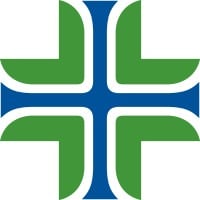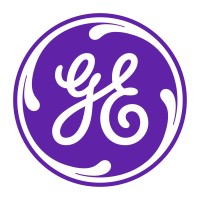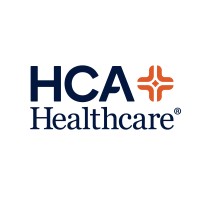
Ochsner Health Company Cyber Security Posture
ochsner.orgOchsner Health is the leading nonprofit healthcare provider in the Gulf South, delivering expert care at its 46 hospitals and more than 370 health and urgent care centers. For 13 consecutive years, U.S. News & World Report has recognized Ochsner as the No. 1 hospital in Louisiana. Additionally, Ochsner Children’s has been recognized as the No. 1 hospital for kids in Louisiana for four consecutive years. Ochsner inspires healthier lives and stronger communities through a combination of standard-setting expertise, quality and digital connectivity not found anywhere else in the region. In 2024, Ochsner Health cared for more than 1.5 million people from every state in the nation and 63 countries. Ochsner’s workforce includes more than 40,000 dedicated team members and over 4,900 employed and affiliated physicians. To learn more about how Ochsner empowers people to get well and stay well, visit https://www.ochsner.org/. When Alton Ochsner and four other physicians opened New Orleans’ first group practice with multiple specialties in 1942, they envisioned providing people with the highest quality medical care, making sure patients received personalized and complete care. Ochsner is a healthcare system that always reaches out to the communities it serves and is a model for what a healthcare system should be. Learn more: https://www.youtube.com/watch?v=Dh-urNwAH9c
Ochsner Health Company Details
ochsner-health-system-
16836 employees
84311.0
62
Hospitals and Health Care
ochsner.org
77
OCH_1119438
In-progress
Between 900 and 1000
This score is AI-generated and less favored by cyber insurers, who prefer the TPRM score.
 Ochsner Health Global Score
Ochsner Health Global Score.png)

Ochsner Health Company Scoring based on AI Models
| Model Name | Date | Description | Current Score Difference | Score |
|---|---|---|---|---|
| AVERAGE-Industry | 03-12-2025 | This score represents the average cybersecurity rating of companies already scanned within the same industry. It provides a benchmark to compare an individual company's security posture against its industry peers. | N/A | Between 900 and 1000 |
Ochsner Health Company Cyber Security News & History
| Entity | Type | Severity | Impact | Seen | Url ID | Details | View |
|---|
Ochsner Health Company Subsidiaries

Ochsner Health is the leading nonprofit healthcare provider in the Gulf South, delivering expert care at its 46 hospitals and more than 370 health and urgent care centers. For 13 consecutive years, U.S. News & World Report has recognized Ochsner as the No. 1 hospital in Louisiana. Additionally, Ochsner Children’s has been recognized as the No. 1 hospital for kids in Louisiana for four consecutive years. Ochsner inspires healthier lives and stronger communities through a combination of standard-setting expertise, quality and digital connectivity not found anywhere else in the region. In 2024, Ochsner Health cared for more than 1.5 million people from every state in the nation and 63 countries. Ochsner’s workforce includes more than 40,000 dedicated team members and over 4,900 employed and affiliated physicians. To learn more about how Ochsner empowers people to get well and stay well, visit https://www.ochsner.org/. When Alton Ochsner and four other physicians opened New Orleans’ first group practice with multiple specialties in 1942, they envisioned providing people with the highest quality medical care, making sure patients received personalized and complete care. Ochsner is a healthcare system that always reaches out to the communities it serves and is a model for what a healthcare system should be. Learn more: https://www.youtube.com/watch?v=Dh-urNwAH9c
Access Data Using Our API

Get company history
.png)
Ochsner Health Cyber Security News
LSU and Ochsner Health Expand Partnership, Leadership in Dementia Care
LSU and Ochsner host four in-person dementia trainings each year: the Alzheimer's Services Educational Conference, as well as three other virtual trainings.
(In)secure: How Continuity Plans Can Help Rev Cycle Leaders Curb Cyberthreats
Rangy new HIPAA reg proposals could ramp up cybersecurity expectations, investments, and dings for falling short. Make sure you're ready.
New Orleans Cybersecurity Salaries: What Can You Expect to Earn?
Entry-level cybersecurity professionals in New Orleans can expect to earn around $64,350 annually, while experienced professionals can earn up ...
AHA podcast: How the FBI is confronting the rise of cyberattacks in health care
The Centers for Medicare & Medicaid Services today announced it has identified a fraud scheme targeting Medicare providers and suppliers. CMS ...
Ochsner Health Promotes Chief Applications Officer to CIO
Ochsner Health has promoted Amy Trainor, RN, from Chief Applications Officer and Vice President of Clinical Systems to System Vice President and Chief ...
The Role of Access Control Systems in Healthcare for Comprehensive Security
Access control systems regulate and restrict access to resources, systems and physical areas within an organization or computer system.
Ochsner Health Scales AI Tool After Its Cuts Prior Authorization Time to Just 4-5 Minutes
Ochsner Health is expanding its use of Latent Health's AI platform after its reduced medication prior authorization times to just 4-5 minutes.
How Ochsner Health grounded its VBC success in a culture of innovation
Learn how Ochsner Health's commitment to innovation propelled them to become a value-based care (VBC) powerhouse with $264 million in ...
Ochsner's hospital-at-home pilot lays groundwork for expansion
Ochsner's hospital-at-home pilot prevented either initial hospitalizations or 15-day readmissions for 92% of patients in the program.

Ochsner Health Similar Companies

Providence
Every day, 119,000 compassionate caregivers serve patients and communities through Providence St. Joseph Health, a national, Catholic, not-for-profit health system, driven by a belief that health is a human right. Rooted in the founding missions of the Sisters of Providence and the Sisters of St.

Health Service Executive
Our purpose is to provide safe, high quality health and personal social services to the population of Ireland. Our vision is a healthier Ireland with a high quality health service valued by all. Our Workforce The health service is the largest employer in the state with over 110,000 whole time equ

GE HealthCare
Every day millions of people feel the impact of our intelligent devices, advanced analytics and artificial intelligence. As a leading global medical technology and digital solutions innovator, GE HealthCare enables clinicians to make faster, more informed decisions through intelligent devices, data

Beth Israel Lahey Health
Beth Israel Lahey Health is a new, integrated system providing patients with better care wherever they are. Care informed by world-class research and education. We are doctors and nurses, technicians and social workers, innovators and educators, and so many others. All with a shared vision for what

HCA Healthcare
HCA Healthcare is dedicated to giving people a healthier tomorrow. As one of the nation’s leading providers of healthcare services, HCA Healthcare is comprised of 188 hospitals and 2,400+ sites of care in 20 states and the United Kingdom. In addition to hospitals, sites of care include surgery cen

University Hospitals Bristol and Weston NHS Foundation Trust
We are University Hospitals Bristol and Weston NHS Foundation Trust (UHBW). One of the largest acute Trusts in the country, bringing together a combined workforce of over 13,000 staff and over 100 different clinical services across 10 different sites, serving a core population of more than 500,000 p

Frequently Asked Questions
Explore insights on cybersecurity incidents, risk posture, and Rankiteo's assessments.
Ochsner Health CyberSecurity History Information
How many cyber incidents has Ochsner Health faced?
Total Incidents: According to Rankiteo, Ochsner Health has faced 0 incidents in the past.
What types of cybersecurity incidents have occurred at Ochsner Health?
Incident Types: The types of cybersecurity incidents that have occurred include .
Incident Details
What are the most common types of attacks the company has faced?
Additional Questions
What Do We Measure?
















Every week, Rankiteo analyzes billions of signals to give organizations a sharper, faster view of emerging risks. With deeper, more actionable intelligence at their fingertips, security teams can outpace threat actors, respond instantly to Zero-Day attacks, and dramatically shrink their risk exposure window.
These are some of the factors we use to calculate the overall score:
Identify exposed access points, detect misconfigured SSL certificates, and uncover vulnerabilities across the network infrastructure.
Gain visibility into the software components used within an organization to detect vulnerabilities, manage risk, and ensure supply chain security.
Monitor and manage all IT assets and their configurations to ensure accurate, real-time visibility across the company's technology environment.
Leverage real-time insights on active threats, malware campaigns, and emerging vulnerabilities to proactively defend against evolving cyberattacks.




